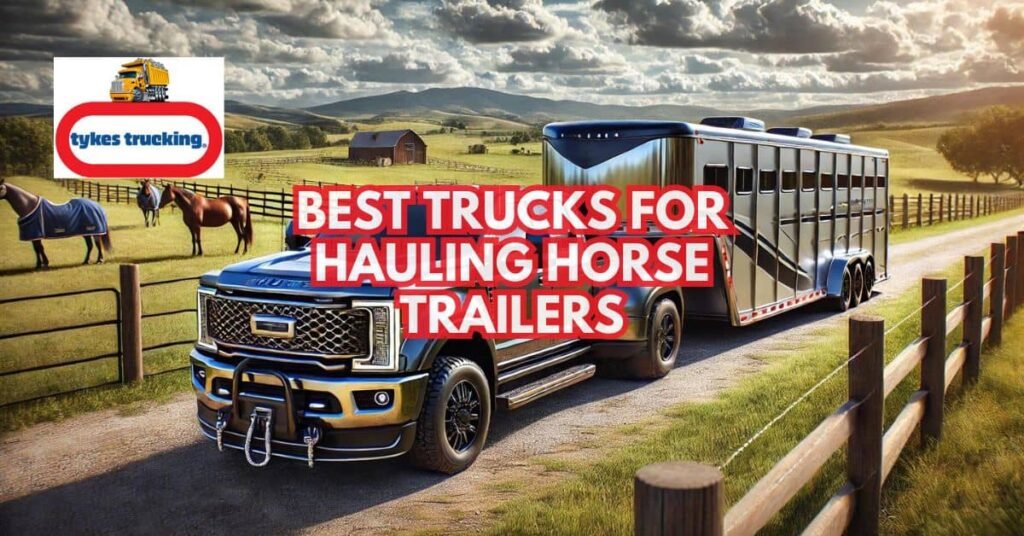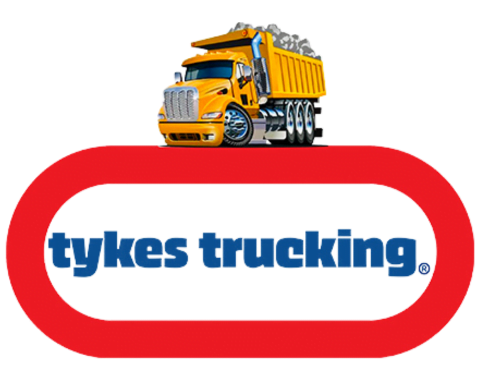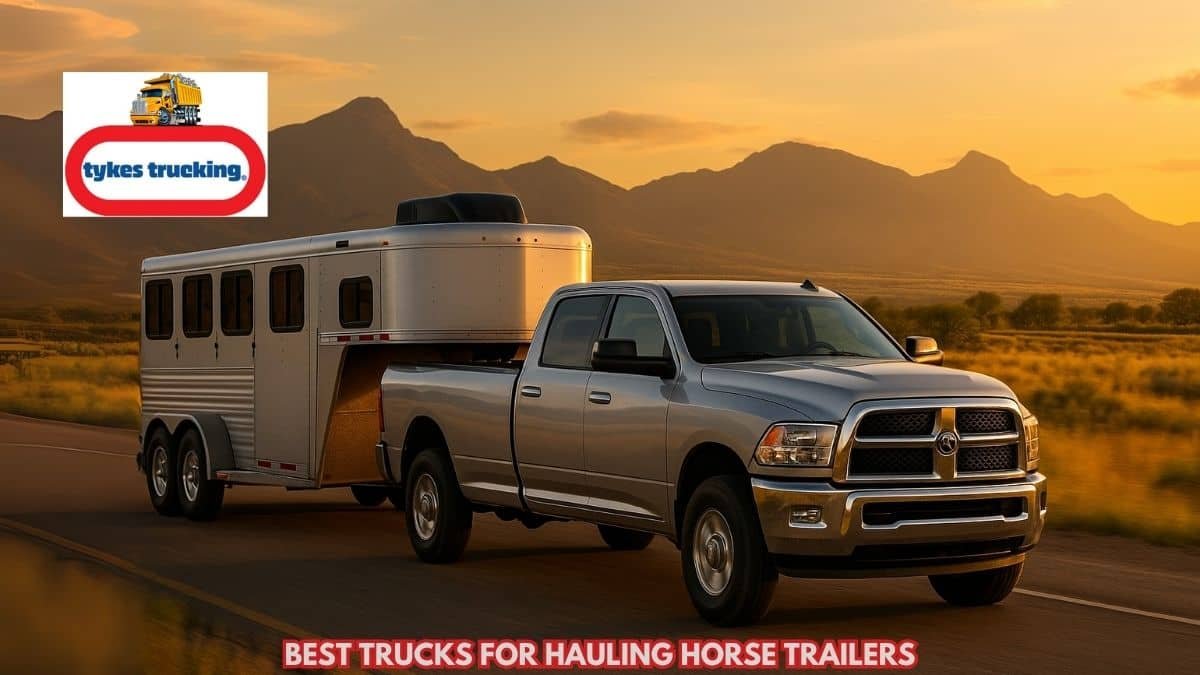When searching for the best trucks for hauling horse trailers, it is important to look beyond surface features.
The right truck must safely manage the combined weight of the trailer, horses, and gear while still offering a steady ride.
Key details such as towing capacity, engine strength, and braking ability can make a major difference in safety and comfort.
Drivers also need to consider how suspension, axle setup, and cooling systems affect performance during long trips or steep climbs.
By understanding these factors, you can choose a truck that meets your needs and protects both you and your horses on the road.
1. Towing Capacity: Ensuring Your Truck Can Handle the Load
Towing capacity is the most important factor when deciding if a truck can safely move a horse trailer.
This number shows the maximum weight the truck can pull without putting too much stress on the engine or transmission.
When adding the trailer, horses, tack, and feed, the total weight often surprises owners, so careful math is needed before choosing.
For larger setups, such as a gooseneck trailer, the weight can climb quickly and requires a truck with higher ratings.
Popular models like the Silverado are often chosen for mid-range trailers, while heavy-duty Ram trucks handle larger loads with ease.
If you plan to tow a smaller two-horse trailer, a half-ton option such as the Ram 1500 may be enough if it is properly equipped.
Exceeding the safe towing capacity can lead to overheated parts, transmission damage, or reduced control on the road.
It is always safer to select a truck that can tow more than the combined load rather than one that just meets the minimum.
By understanding and respecting towing limits, you protect your truck, your trailer, and most importantly, your horses.
🚚 Understanding the Mechanics of the Garbage Truck Hydraulic System: How It Works and Why It Matters
2. Engine Power: Why a Strong Engine Matters for Towing
A strong engine is vital for towing heavy horse trailers, especially when driving on hilly or uneven terrain.
Higher horsepower and torque ensure that your truck can pull the trailer smoothly, even under challenging conditions.
Diesel engines often provide better torque and fuel efficiency, making them a popular choice for towing.
Additionally, a powerful engine reduces the strain on your vehicle, prolonging its lifespan and improving overall performance.
Always consider the engine specs in relation to your towing needs to ensure reliability.
3. Transmission Type: Automatic vs. Manual for Hauling Horse Trailers
The choice between automatic and manual transmission can significantly impact your towing experience.
Automatic transmissions are often preferred for their ease of use and smooth gear shifts, which can be beneficial when towing heavy loads over long distances.
Manual transmissions, on the other hand, offer more direct control over gear changes, which can be advantageous on steep inclines or rough roads.
Some trucks are equipped with advanced automatic transmissions that mimic manual control, giving you the best of both worlds.
Understanding the benefits and limitations of each type will help you choose the right transmission for your needs.
🚚 Understanding the Different Types of Dump Trucks and Their Uses
4. Payload Capacity: How Much Weight Your Truck Can Carry
Payload capacity is just as important as towing capacity when it comes to hauling horse trailers.
This figure represents the maximum weight your truck can carry in its bed and cab, including passengers, cargo, and equipment.
When towing a horse trailer, you’ll likely need to carry additional gear like saddles, feed, and water, which all add to the payload.
It’s crucial to ensure your truck’s payload capacity exceeds the combined weight of everything you plan to carry.
Overloading your truck can not only compromise safety but also lead to premature wear and tear on your vehicle.
🚚 How to Optimize Dump Truck Fuel Consumption Per Hour for Cost Savings

5. Suspension and Stability: Maintaining Comfort and Control While Towing
A well-designed suspension system is key to maintaining control and comfort while towing a horse trailer.
Trucks with advanced suspension systems can better absorb road shocks, preventing the trailer from bouncing excessively and causing discomfort for the horses.
Stability features like trailer sway control and load-leveling suspension are also essential, as they help keep the trailer aligned with the truck, especially during sharp turns or in windy conditions.
These features ensure that both the driver and the horse experience a smooth ride.
Investing in a truck with a strong suspension system can make a significant difference in safety and comfort.
🚚 How to Choose the Right Dump Truck Hauling Services in the Philippines for Your Needs
6. Brake System: Essential Features for Safe Towing
A reliable brake system is critical for safely towing heavy loads, such as horse trailers.
Trucks equipped with integrated trailer brake controllers allow the driver to adjust the trailer’s brakes independently, which is essential for maintaining control, especially on downhill slopes.
Anti-lock braking systems (ABS) and electronic stability control are also important features that help prevent the wheels from locking up and skidding.
These systems are particularly valuable in emergency braking situations, where the added weight of a trailer can make stopping more challenging.
Prioritizing a truck with a robust brake system can provide peace of mind when transporting valuable cargo.
🚚 How to Choose the Best Dump Truck Design for Your Hauling Needs
7. Cooling and Powertrain Braking for Safer Towing
Heavy-duty cooling systems keep the engine and transmission from overheating when pulling heavy horse trailers on steep roads or in hot weather.
Extra coolers for oil and transmission fluid help the truck stay reliable during long climbs or summer hauling.
The tow haul mode changes how the transmission shifts to reduce strain and improve control when carrying heavy loads.
Diesel trucks may also use an exhaust brake that slows the vehicle by using engine pressure instead of relying only on the wheel brakes.
These features work together to prevent brake fade and give the driver more control when going downhill with a loaded trailer.
🚚 How to Choose the Best Trucking Services in Cainta for Your Needs
8. Rear Axle Ratio: How It Affects Towing Power and Efficiency
The rear axle ratio of a truck directly influences its towing power and fuel efficiency.
A lower axle ratio (numerically higher) provides more torque, making it easier to tow heavy loads like horse trailers.
However, this can come at the cost of reduced fuel efficiency, as the engine works harder at lower speeds.
Conversely, a higher axle ratio (numerically lower) offers better fuel efficiency but may struggle with heavy towing.
It’s important to balance your need for towing power with your desire for fuel economy when choosing a truck with the right rear axle ratio.
🚚 Can Truck Drivers Have Passengers?
9. Bed Size and Configuration: Choosing the Right Truck Bed for Your Needs
The size and configuration of the truck bed are important considerations when hauling horse trailers, especially if you need to carry additional equipment.
A larger bed can accommodate more gear, such as saddles, feed, and water containers, which are essential for long trips.
However, a longer bed may make the truck more difficult to maneuver, particularly in tight spaces or when making sharp turns.
Some trucks offer configurable bed options, like adjustable tie-downs or built-in storage compartments, which can help you organize and secure your cargo more effectively.
When choosing a truck, consider how much space you’ll need and how the bed configuration can best support your hauling needs.
🚚 The Vital Role of Refrigerated Trucking Services
10. Comfort and Driving Experience: What Makes Towing More Enjoyable
Towing a horse trailer can be a demanding task, so the comfort and driving experience of your truck should not be overlooked.
Features like ergonomic seating, advanced climate control, and a well-designed cabin can make long drives more comfortable.
Modern trucks often come equipped with driver-assistance technologies, such as adaptive cruise control and lane-keeping assist, which can reduce the stress of towing.
A quiet and smooth ride also contributes to less driver fatigue, which is crucial when traveling long distances with a horse trailer.
Prioritizing comfort and convenience features in your truck can greatly enhance your overall towing experience.
🚚 Hauling Aggregates with Dump Trucks
11. Fuel Efficiency: Balancing Power and Economy for Towing
Fuel efficiency is an important factor to consider, especially if you plan to tow your horse trailer over long distances.
While more powerful trucks tend to consume more fuel, advancements in engine technology have made it possible to achieve a balance between power and economy.
Diesel engines, for example, often offer better fuel efficiency compared to gasoline engines, particularly when towing heavy loads.
Some trucks also feature fuel-saving technologies, such as cylinder deactivation or start-stop systems, which can help reduce fuel consumption during less demanding driving conditions.
Choosing a truck that offers good fuel efficiency can help lower your overall costs without sacrificing towing capability.
🚚 Comprehensive Dump Truck Solutions for Marikina
💡 Conclusion
Selecting the perfect truck for hauling horse trailers requires a careful evaluation of multiple factors, from towing capacity to driving comfort.
Each aspect, from engine power to brake systems, plays a critical role in ensuring a safe and smooth towing experience.
By understanding your specific needs and the demands of towing a horse trailer, you can make an informed decision that balances power, safety, and convenience.
The right truck will not only handle the load effectively but also provide a comfortable and efficient ride for both you and your horses.
Ultimately, investing in a well-suited truck will give you confidence on the road, ensuring that you and your horses reach your destination safely.
😉 Our Services
At Tykes Trucking Services, we specialize in delivering aggregates and providing reliable hauling services.
Whether you need materials for construction or transportation solutions, our experienced team is ready to assist.
We pride ourselves on timely deliveries and exceptional service.
Contact us at 09175435019, reach out via our Facebook page, or use our site’s contact form to get started.
Let Tykes Trucking Services handle your hauling needs with efficiency and care.
❓ FAQs
1. How much towing capacity do I need for a horse trailer?
You should choose a truck with a towing capacity higher than the total weight of the trailer, horses, and gear.
A two-horse trailer with gear often weighs between 7,000 and 10,000 pounds.
Always leave extra capacity for safety and performance.
2. Is a diesel truck better than a gas truck for hauling horse trailers?
Diesel trucks usually provide more torque, which helps with pulling heavy loads and driving on steep hills.
They also tend to be more fuel-efficient under load.
However, gas trucks can still handle lighter trailers and are often less expensive to buy and maintain.
3. Do I need a dually truck for towing a horse trailer?
A dually, which has dual rear wheels, is most useful for very heavy trailers or large living-quarters trailers.
For smaller two-horse or three-horse trailers, a single-rear-wheel truck is often enough.
The choice depends on the trailer size and weight.
4. Why is suspension important when towing horses?
Good suspension keeps the ride smoother for both the driver and the horses.
It reduces bouncing, helps control sway, and keeps the trailer stable in turns or wind.
This makes the trip safer and more comfortable for the animals.
5. What safety features should I look for in a truck used for hauling horses?
Important safety features include trailer brake controllers, anti-lock brakes, sway control, and strong cooling systems.
Tow mirrors, backup cameras, and trailer tire-pressure monitors can also improve safety.
These features give the driver better control and help protect the horses during travel.

